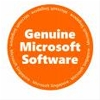 I’ve been playing with Facebook a little this week. I know, I’m very late on this. The idea of social networks still gives me the shivers. Putting your picture on the net? You’d have to be an exhibitionist to do that, right? I guess I was schooled in a different era.
I’ve been playing with Facebook a little this week. I know, I’m very late on this. The idea of social networks still gives me the shivers. Putting your picture on the net? You’d have to be an exhibitionist to do that, right? I guess I was schooled in a different era.
Anyway, Facebook is actually pretty neat. I’ve been surprised how with only 3-4 contacts of my own, just a little bit of activity has somehow brought me onto the radar for a number of people. One is a fellow from college that I haven’t spoken to for over 10 years, another is a gal from high school that I haven’t spoken to for almost 20, and then there have been several other contacts from folks I know recently. All in all, I have to say that Facebook made these connections quite effortless, professional, and even kinda cool. I’m seriously considering posting a picture now.
But Facebook really kind of makes my jaw drop with it’s inefficiency. The fact that Facebook (or myspace, I suppose) exist, is simply due to the complete and total failure of email.
First, lets look at the inefficiency. Each time someone sends me a message on Facebook, Facebook sends me an email. The email looks something like:
Jennifer added you as a friend on Facebook. We need you to confirm that you are, in fact, friends with Jennifer.
To confirm this friend request, follow the link below:
http://www.facebook.com/n/?reqs.php
Thanks,
The Facebook Team
___
Want to control which emails you receive from Facebook? Go to: http://www.facebook.com/editaccount.php?notifications
Upon reading this nicely done email, you have to go login to a whole another system to see whats up with Jennifer, engage with Facebook, etc. It all makes total sense except that Jennifer could have just sent me an email!
Unfortunately for SMTP again, email just isn’t cutting today’s communications. Today we need:
– Photos (duh)
– Seamless integration with chat
– Public address books (e.g. friends)
– Security around public/private information
– Online/presence information
– This is a stupid list – its so obvious.
Ironically, what makes SMTP great is that its a fantastically distributed system, with no central database of email. Its this same decentralized control which makes it completely impossible to upgrade and add features to. So instead, a whole generation of techies are shifting their communications into a centralized, single-vendor repository.
This can’t go on forever – how many myspace, orkut, facebook, etc accounts are we going to have to maintain to connect with our various friends? This stuff is going to interconnect sooner or later. And you’ll probably be able to send and receive legacy email too. Once it does – do we finally have a modern email solution?
Perhaps this is how we replace SMTP.
UPDATE: I turned off all email notifications from facebook. It’s just annoying to get an email which says, “you have email, click here, login, and spend 25 seconds reading it over here”, or “xxx jumped through a hoop, click here to see the picture”. I don’t want to “click here”. Send me email.
 I’ve never been a fan of anti-piracy schemes. I know Microsoft feels strongly that they are losing money through others using their software. But it’s clear that Microsoft actually benefits from piracy.
I’ve never been a fan of anti-piracy schemes. I know Microsoft feels strongly that they are losing money through others using their software. But it’s clear that Microsoft actually benefits from piracy. I upgraded to Vista about 2 weeks ago. I had to, because uninstalling Visual Studio 2005 left my computer unusable. It locked up the mouse and had to be periodically rebooted.
I upgraded to Vista about 2 weeks ago. I had to, because uninstalling Visual Studio 2005 left my computer unusable. It locked up the mouse and had to be periodically rebooted.